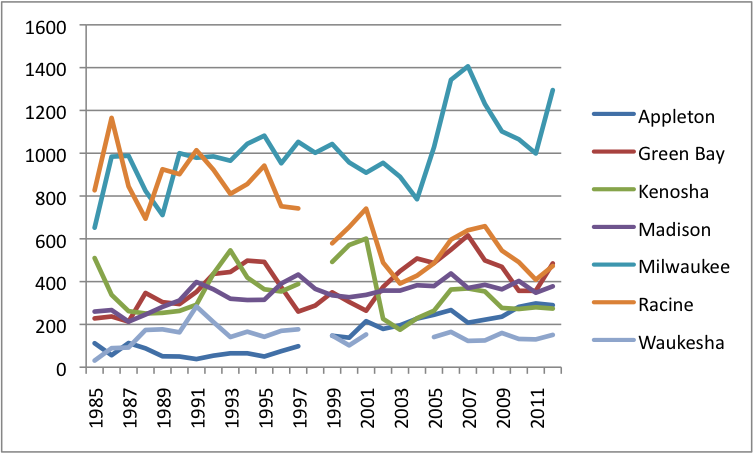Wisconsinites Give Criminal-Justice System Low Marks, Especially for Offender Rehabilitation
We expect a lot from our criminal-justice system, and we don’t seem very impressed with the results we are getting. These are two of the notable lessons that emerge from the most recent Marquette Law School Poll of Wisconsin residents, the results of which were released earlier today.
In one part of the survey, respondents were asked to assess the importance of five competing priorities for the criminal-justice system. As to each of the five, a majority indicated that the priority was either “very important” or “absolutely essential.” The five priorities were:
- Making Wisconsin a safer place to live (91.6% said either very important or absolutely essential)
- Ensuring that people who commit crimes receive the punishment they deserve (88.1%)
- Keeping crime victims informed about their cases and helping them to understand how the system works (81.0%)
- Rehabilitating offenders and helping them to become contributing members of society (74.1%)
- Reducing the amount of money we spend on imprisoning criminals (51.2%)

